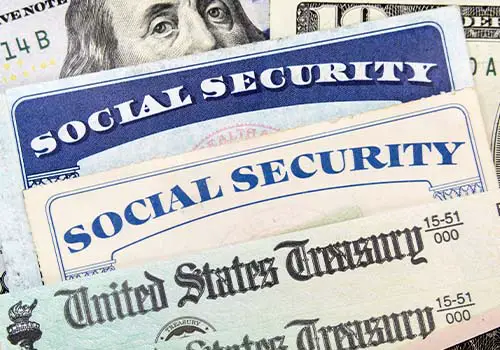Many people find that they need the assistance of hearing aids as they age. With so many seniors receiving Medicare, you are likely wondering whether Medicare will cover hearing aids.
Depending on your specific Medicare plan, the answer can get a little complex. There are Original Medicare, Medicare Advantage plans, and Medigap. So, the answer might depend on your Medicare coverage type.
If you are starting to experience hearing loss, then keep reading. We will give you all the details regarding Medicare and hearing aids. We’ll tell you whether Medicare covers hearing aids and hearing tests and how much you might have to pay for your hearing aids.
Does Medicare Cover Hearing Aids?
Many people wonder, “Are hearing aids covered by Medicare?” The basic answer is no. Original Medicare does not cover hearing aids or exams for fitting hearing aids.
However, there is more to the story. If you have a Medicare Part C plan, you might have coverage for hearing aids. So, what does Medicare cover when it comes to hearing services? Here is how coverage for hearing aids is handled under each part of Medicare.
-
Medicare Part A
Medicare Part A is hospital insurance that covers hospital stays, inpatient care, hospice care, and care in a skilled nursing facility. Medicare Part A coverage is mandatory, and many people are automatically enrolled. However, it does not provide any coverage or benefits for hearing aids. Under Part A coverage, you will be responsible for the total cost of hearing aids on your own. Part A provides no coverage for hearing care.
-
Medicare Part B
So, does Part B cover hearing aids? Medicare Part B is medical insurance that covers doctor visits, lab tests, preventive services, and outpatient services. You typically only need to pay a copay when you visit your healthcare provider. Part B requires a monthly premium, and the amount you pay depends on your total annual income. Part B does not provide coverage for hearing aids. However, Part B does cover hearing exams in some cases. If your physician deems a diagnostic hearing exam or balance exam necessary to treat a medical condition, Part B will cover the exam. You must still pay your coinsurance, which is 20% of the covered service.
-
Medicare Part C (Advantage Plan)
So, are hearing aids covered under Medicare Advantage plans? Remember that Medicare Advantage plans are managed and administered by private insurance companies. These plans combine your Part A and Part B coverage into one plan. These plans must provide at least the same minimum level of coverage as Original Medicare. However, most plans offer additional benefits beyond what Original Medicare provides. This may include dental care and Medicare coverage of eye exams.
The specifics of each plan are determined by the insurance company that manages it since these providers can set their own rules. Most Medicare Advantage plans do provide hearing aid benefits. According to the Kaiser Family Foundation, more than 90% of Advantage plans provide some hearing aid benefit. You will likely still be responsible for copays and deductibles, but having some health insurance benefits is better than nothing. -
Medicare Part D
Medicare Part D provides prescription drug coverage. These prescription drug plans do not offer any benefits for hearing aids. Part D plans can be purchased on their own by anyone who is enrolled in Medicare. Although Part D plans are not mandatory, you might pay a late enrollment penalty if you do not sign up when you first become eligible. Most Medicare Advantage plans also provide prescription drug benefits. If you are an older adult looking for hearing benefits, consider other options besides a Medicare Part D plan.
-
Medigap
Many Medicare beneficiaries enroll in a Medicare supplement plan to help with out-of-pocket costs not covered by Medicare. As a rule, the service must be covered by your Medicare benefits for Medigap to help with payment. Medigap plans help pay copays, deductibles, and coinsurance amounts, although new plans can no longer cover your Part B deductible. Medicare supplement insurance does not cover hearing aids, although they might pay for some hearing-related medical treatment. This is like Medicare Part B in that the diagnostic exam must be ordered by a physician to treat a medical condition. You might be able to purchase a Medigap add-on policy that will provide some hearing coverage, but you should check with your plan provider for specifics.
KEY TAKEAWAYS
- Medicare Part A does not cover hearing aid costs, and Part B only covers hearing exams on rare occasions when needed to help treat a covered medical condition.
- A Medicare Advantage plan or Part C plan is a plan administered by private insurance companies and may include hearing, dental, and vision coverage.
- The average cost for a pair of earning aids with associated exams ranges from $2,500 to $7,500 without insurance coverage.
Medicare Coverage For Hearing Tests

Medicare does not cover hearing aids, and it generally does not cover hearing tests or hearing services either. There is one exception, though.
- If your doctor orders a hearing test or balance test to determine whether treatment is needed for a medical condition, then the test will be covered.
You might need a referral from your primary care physician in some cases. You might be referred to an audiologist to complete some of these tests. However, remember that hearing problems are not enough to get Medicare to cover the cost of a hearing test.
- A physician must deem these tests medically necessary to treat a medical condition.
Many Medicare Advantage plans provide some hearing health coverage. These plans often provide benefits for both hearing tests and hearing aids.
Private insurance companies manage these plans and can set their own coverage rules. You should contact your plan provider to determine the specifics of your plan.
If you are considering enrollment, you can use the Medicare plan finder at Medicare.gov to find Advantage plans available in your area.
Must read articles related to Medicare
- Overview of what is covered under Medicare.
- Are there Medicare grocery benefits?
- Will Medicare pay for my wheelchair?
- Does Medicare cover a colonoscopy?
- How do you sign up for Medicare?
Cost Of Hearing Aids With Medicare
Hearing aids are not cheap, and Original Medicare does not help with the cost. Currently, most hearing aids require a prescription. This means that you will need to visit your doctor before being allowed to purchase the hearing aids.
This adds to the devices’ total cost because the doctor must perform hearing tests and hearing aid fitment exams. Many people need hearing aids in both ears, which essentially doubles the device’s cost.
- On average, a set of two hearing aids can cost between $2,500 and $7,500. These prices are often bundled to include all the exams and fittings accompanying the purchase.
The FDA is also working on regulations that will allow for the sale of over-the-counter hearing aids. This means that you would be able to purchase hearing aids without a prescription. This effort aims to bring down the overall cost of hearing aids to make them more accessible to those who need them.
Hearing is essential to one’s overall wellness, so finding ways to make these devices more affordable is a step in the right direction.
Though Original Medicare does not provide coverage for hearing aids, many Medicare Advantage plans cover these devices. The amount you will need to pay for the devices depends on your specific Advantage plan.
- Most plans require you to pay a coinsurance amount when you purchase the devices. This means that you might still need to pay anywhere from $500 to $1,500 for the hearing aids, but these amounts are much better than those without coverage.
TIP
If you think you might need hearing aids and cannot afford the total cost out of pocket, you should consider applying for a Medicare Advantage plan (Part C) that includes hearing coverage. This can reduce your out-of-pocket cost significantly.
Best Medicare Plans With Hearing Aid Coverage
Now that you know Medicare hearing aid coverage is only available through Medicare Advantage plans, which one is the best Medicare Advantage plan for those needing hearing aid coverage? Here are the three best Advantage plans for those individuals who need hearing aid coverage.
- Humana
- Blue Cross Blue Shield
- AARP / United HealthCare
Plans administered by the three providers above provide varying benefits for hearing aids. The coverage provided in these plans can greatly reduce your out-of-pocket expenses related to the fitment and purchase of hearing aid devices.
With these plans, the total cost for hearing aids would be anywhere from $500 to $2,000 in most cases. The exact amount depends on the testing required for diagnosis and the specific device that your doctor prescribes.
The Bottom Line
Original Medicare does not cover hearing aids, and it rarely covers hearing tests unless those tests are ordered by your physician to determine whether treatment is needed for a medical condition.
Medigap plans also do not cover hearing aids, but Medicare Advantage plans usually provide hearing benefits – including hearing aids.
You will need to reference your plan documentation for specific coverage details, but most plans can greatly reduce the cost of a hearing aid.
Frequently Asked Questions
No, Original Medicare will not pay for hearing aids in 2024. Medicare has never covered hearing aids, and the Medicare Act of 1965 specifically excludes them.
These devices were determined to be low in cost, so Medicare beneficiaries were expected to pay for them on their own.
However, people are living longer today than they did in 1965, and more people are suffering from age-related hearing loss. Hearing aids are expensive now, but Medicare still does not provide coverage for them.
Some lawmakers have attempted to change Medicare to provide coverage for vision, dental, and hearing services.
However, none of these attempts have gotten passed as law so far. Only time will tell whether Medicare will be updated to change their coverage of hearing aids. New legislation has frequently been introduced to make this change to Medicare, but it has not gotten much traction in Congress.
Medicare might eventually be changed to cover hearing aids, but there is no guarantee this will ever happen.
Medicaid must provide hearing services to enrolled individuals under 21. However, each state has discretion on whether to provide hearing services to adults over 21 enrolled in Medicaid.
Many states do not provide coverage for hearing tests or hearing aids. Other states offer coverage, although the coverage details vary by state.
If you have questions about your coverage, you should check with your state Medicaid office to find out what is covered.
You can find a Social Security Administration office near you by using our SSA office locator and searching for your closest location.





